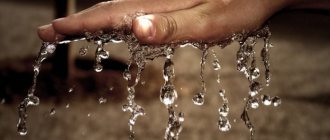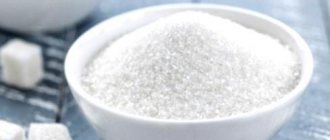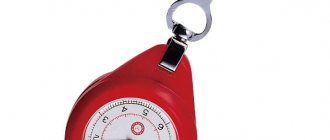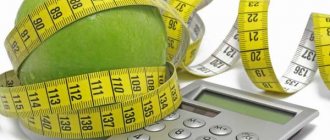When all known diets have already been tried, but the desired result has not been achieved, you can try on yourself a world-famous method that will help you lose weight and also cleanse the body. This method was proposed by American naturopath Paul Bragg. Fasting is, according to the author, the key to a healthy body and rapid weight loss. Paul Bragg promoted the use of his own technique for health purposes and successfully applied it to himself. His teachings spread throughout the world.
It has long been proven that a person can live without food for about one month, so do not worry - you are not in danger of dying from hunger. Quite a lot has already been written about water fasting (7 days). The reviews and results, it must be said, are impressive. In the same article, the information will be discussed in more detail for those who are ready to fast in order to achieve a slim figure.
What actually happens in a situation of food refusal with the human body? How to fast on water? How long does this diet last? How to get out of it? We will answer your questions.
Water fasting (7 days): reviews, results
Don’t think that a day or two of fasting will immediately relieve you of extra pounds. If you stop eating for a short period of time, you can only lose a little weight. In this case, it will not be fat that will go away, but excess fluid, which is always present in large quantities in the body of obese people.
Two or three days of fasting will not have the same effect as a longer period of fasting (at least a week). Judging by the reviews, the weight comes off faster in the first two days, then the body adapts to the new conditions, and the fat reserve is used more sparingly. The number of kilograms that you will be able to get rid of cannot be determined in advance. Each person is individual, and it all depends on how long you can maintain such a diet. According to the results of people who have tried this method on themselves, it is clear that about one kilogram is lost per day.
How to drink by the hour for weight loss?
Yes, how much you drink often also depends on your personal abilities and needs. There are people who physically cannot drink several liters of water a day. But still, if you want benefits, then it’s better to drink like this:
- 8:00. Remember, it is very good to drink water on an empty stomach. That is, before eating in the morning, first drink a glass of water, but not ice water. With this action, you seem to wake up yourself and your body. So a glass of water before breakfast is a great idea;
- 11:00. Schemes every 2 or 3 hours will be very similar. You just need to maintain your body's water balance sometimes, and if you plan to have a snack, then definitely drink a glass. Soon, you will even develop a habit;
- 13:00. A huge number of nutritionists strongly recommend drinking 1 glass of warm or room temperature water 30 minutes before lunch. Also, unfortunately, a huge number of people believe that you shouldn’t drink while eating. And what’s most unpleasant is that everyone on every corner says, don’t drink, it’s so bad for your stomach. This is a lie. It will only harm you if you drink large amounts of lemonade, but not water. Especially if the water is clean and good. Water will help soften food and digest it better. The food must be saturated with saliva, which contains the necessary enzymes. So don’t forget, and try to develop the habit of drinking a glass of water;
- After lunch, towards evening, you can make the same scheme as in the morning. Drink a glass of water 30 minutes before dinner. This is not required, but recommended. So in the evening, you independently regulate your water intake. Always remind yourself that drinking warm water is very beneficial, and an extra glass of water will definitely not harm you.
What can you drink besides water?
Nothing. You can only drink clean water, preferably spring water. The consumption of juices, herbal infusions, teas and other liquids is strictly prohibited, as they can interfere with the cleansing processes that occur in the body during fasting.
In hot weather, you can drink cool water, but in the cold season it is better to drink warm or slightly hot water. The thing is that a couple of days after the start of the hunger strike, the body begins to feel cold, and cold water only intensifies the chill.
Body signals about lack of water
How the body gives us signals that it does not have enough water:
- Thirst and dry mouth appear
The appearance of thirst indicates that the body is in a state of dehydration, and you don’t care what to drink, anything will do: hot and cold water, carbonated or plain water. It is worth quickly satisfying this need.
Thirst is often confused with the desire to eat something, because in our body the same center in the head is responsible for the desire to eat and drink. It is worth drinking water first if you are feeling hungry.
Recommended on the topic: How to learn to eat little, not to overeat, methods of reducing appetite
- Fatigue, tiredness and lethargy
A direct indication from the body that you are consuming little water and the body is falling into a low-energy state in order to save energy. 90% of this condition is caused by lack of water.
- Digestive problems and constipation
Heartburn, bloating, indigestion, sometimes nausea, as well as common stomach upset can be caused by a lack of water. It is often said that if you have heartburn, you can drink a glass of warm water and it often goes away on its own without medication. Gastric juice will be viscous without water, so it’s worth drinking water 20-30-40 minutes before meals.
Constipation also occurs due to lack of water; food is poorly absorbed by the intestinal walls due to its hard consistency. Therefore, in this case, it is better to drink 2-3 glasses of water before drinking a laxative.
- Insufficient urination and change in urine color
Concentrated urine has a smell, thicker color and consistency, and this is a direct sign of a small amount of fluid in the body. If you go to the toilet 4 times a day and little by little, then you need to increase the volume of fluid consumed. Dark or strongly colored urine, if you have not eaten colored foods (beets, for example) and are not taking medications that are colored, indicates that there is little water in the body.
In reality, its color should be slightly yellowish. The first morning urine may have a richer color and a denser consistency, but if this happens during the day, then you need to pay attention to the amount of liquid you drink.
And here is the last, important point. Weight gain occurs because the body accumulates fluid for future use, because little of it enters the body. And this is what causes weight gain. Therefore, it is recommended to pay attention to the amount of water consumed. About two liters per day is the average water requirement.
But not all water promotes weight loss. Let's deal with this issue!
Water is a building material for our cells and a means for weight loss
It turns out that water not only helps our cells renew themselves, but also helps remove toxins. It also promotes weight loss. And this diet is called the “drinking” diet.
With its help, you can lose from 2 to 3 kg of weight within a week. Accordingly, with a simple calculation, you can lose about 10-12 kg per month, just by increasing your water consumption.
One day of water fasting
A one-day fast on water practically does not pose any danger to the body. You can practice it at least every week. You just need to choose a specific day that is suitable for you and give your body a break from food.
This practice will relieve the digestive system and contribute to its healing. Is it possible to lose weight with this regimen? Depends on you. If, after a hungry day, you greedily pounce on food, without understanding what is on your plate, then you are unlikely to be able to lose weight. At the same time, observing moderation in diet the day after the fast will gradually lead you to the desired result.
Daily water consumption rate
An adult should consume 50 ml of water per 1 kg of weight every day. There is another formula that allows you to calculate the ideal amount of water consumed. You need to divide your weight by 20. It is worth starting a water diet with 1.5 liters, especially if a person previously consumed liquid in small quantities. Gradually you need to increase its rate.
The amount of daily water depends on other factors:
- age;
- humidity and temperature;
- the number of extra pounds;
- physical activity;
- bad habits;
- health status.
Daily water consumption is calculated taking into account the individual characteristics of a person. But you need to try to adhere to the above calculation formula.
What happens to the human body during a hunger strike
The human body is a smart and perfect system. A week of fasting sets into motion many complex processes that are aimed at cleansing and healing all organ systems.
Already on the second day, when refusing food, the secretion of the gastrointestinal tract changes - gastric juice stops secreting, and the organ itself is filled with proteins and unsaturated fatty acids. They, in turn, activate the neurohormone cholecystokinin, which suppresses the feeling of hunger.
When refusing food, a person may experience headache, weakness, sleep disturbance, nausea and sometimes even vomiting. Fats are broken down, and a week later the so-called acidotic crisis occurs, and the body completely switches to internal nutrition.
After the acidotic crisis has passed, your health improves, your headache and dizziness go away, and you feel a surge of strength. Now daily weight loss is about 500 grams per day. This pace continues until the end of the hunger strike.
How to properly prepare for fasting
Fasting on water for 3 days or less does not require any special preparation. The main thing here is willpower, firmness of intention and determination. But longer-term refusal of food needs a serious approach. About a week before the hunger strike, give up heavy fatty foods: meat, hot spices and alcohol. It is best to follow a dairy-vegetable diet.
Before the first day of the hunger strike, you should carry out a bowel cleansing procedure.
Reviews
Most people who have tried this diet note its effectiveness. It is usually chosen by those who need to lose weight quickly. But to achieve greater results, it is recommended to combine it with physical activity. Among its disadvantages are the increased load on the urinary system and the small size of portions.
The water diet is popular not only due to its high efficiency, but also its minimal cost. It’s better to start with a lighter version, because fasting is a lot of stress for the body. There are several options for a water diet, and everyone has the opportunity to choose the most suitable one. It is important to exit the diet correctly so that the extra pounds do not return and to consolidate the achieved result.
IMPORTANT! Informational article! Before use, you should consult a specialist.
Breaking out of fasting
A very important point of this diet is that you need to know how to break fast correctly. You should return to the normal regime gradually, for about the same number of days as the hunger strike itself lasted. That is, if you practiced water fasting for 7 days, reviews and results from other people claim that restoring your diet should last exactly a week. The gradual exit from fasting can be described as follows.
- On the first day after the end of the hunger strike, you can only eat natural juice. It is desirable that it be fruit and vegetable, diluted with water in a one to one ratio.
- On the second day, undiluted juice and vegetable and fruit purees in small quantities are allowed.
- On the third day, in addition to pureed fruits and vegetables, you can allow yourself to eat porridge cooked in water, with a small amount of bread, as well as some dried fruits.
- On the fourth day, in addition to all of the above, vegetarian soups using a small amount of vegetable oil are allowed to be consumed.
- On the fifth day, you can already afford some fermented milk products, for example, kefir or fermented baked milk.
- On the sixth day, you can add sour cream, a little cheese and salt to your diet.
- On the seventh day, it is permissible to eat low-fat cottage cheese and eggs.
After a week of recovery, you can gradually begin to eat chicken, fish and other foods.
As you can see, with a diet such as water fasting, the solution turns out to be no less difficult for a person than the process of fasting itself.
Water diet
The recommended duration of such a fat burning program is 3-4 weeks. You can’t do it longer, otherwise there will be a heavy load on the excretory system. If desired, you can repeat the course a month later.
There are several methods that allow you to calculate how much water you need to drink daily on this diet:
- In the first option, you need to divide the weight by 20. Let's say, if you weigh 60 kg, then your norm is 3 liters.
- The second option is to use 30-40 ml of liquid per kilo of weight. According to this scheme, if you weigh 60 kg per day, you need to drink up to 2.4 liters of water.
As you can see, daily figures vary. The advice of a nutritionist will help you avoid making mistakes with the norm. Before going on a water diet, visit a specialist. Taking into account the characteristics of your body, he will calculate the optimal daily fluid intake for you.
The water diet promises amazing results - up to -3 kilos in 4 weeks. No food restrictions or hunger strikes!
Just drink a refreshing liquid in the morning. You should also drink half an hour before meals and 1.5-2 hours after a meal. Thanks to this regimen, the volume of consumed portions of food is reduced and metabolism is accelerated. The benefits of such a diet are considerable. This video will tell you more about it:
However, if you want to lose a significant amount of weight, you'll have to do a lot more than just drink water. After all, this is only one, very small piece of the puzzle. You can't do without moderate physical activity.
To maintain the results obtained, drink at least 1.5-2 liters of water per day. This is 6-8 glasses. Absorb life-giving moisture in the same mode as during the diet. That is, in the morning on an empty stomach, half an hour before meals, etc.
Rules of conduct during fasting
If you are completely healthy, you will tolerate fasting quite well. But there are a number of conditions that must be met.
In addition to observing the drinking regime, it is also necessary to do cleansing enemas every day. This procedure helps remove waste products from the rectum. If you refuse to do an enema, toxins will be absorbed into the blood, and this can cause self-poisoning of the body. An equally important point during fasting is taking a shower every day.
When refusing food, it is better to lead an active lifestyle, spend time outside more often, but under no circumstances lie on the sofa in a confined space. And, as already written above, do not forget that during a fast on the water, a person will feel cold, so you should dress a little warmer than usual. Well, as with any other diet, you should avoid stressful situations if you practice water fasting.
Disadvantages of a Seven Day Fast
There are certain features when fasting for weight loss. Every day during hunger it is necessary to do enemas to cleanse the gastrointestinal tract. By the way, this facilitates fasting and removes toxins that the body actively begins to release during a fasting diet.
A doctor's consultation is required. Otherwise, you will not improve, but ruin your health. If you prepare incorrectly, you will feel severe weakness, headache, nausea, dizziness and poor health.
One way or another, due to the lack of food in the body, weakness is felt. The seven-day fast does not need to be extended without consulting a specialist, otherwise the lost kilograms will return and the metabolism will slow down. Again, if the technique is used incorrectly, exacerbations of chronic diseases of the digestive system are possible.
With prolonged fasting, ulcers, gastritis, and colitis can worsen. Apathy is possible.
Contraindications
Important! Independent fasting at home is recommended to be practiced only by absolutely healthy people, regardless of the reasons for which it was decided to resort to this method: to improve well-being or to lose weight.
Therapeutic fasting is completely contraindicated for people with diseases such as active tuberculosis, severe pathologies of the heart, blood, malignant tumors, type I diabetes mellitus, bronchiectasis, thyrotoxicosis, thrombophlebitis, underweight, in the post-infarction period, during pregnancy and during breastfeeding.
Also, relative contraindications are for people suffering from type II diabetes mellitus, gout, cholelithiasis, hypotension, peptic ulcer disease, chronic venous insufficiency, and are also in childhood or old age.
Water on an empty stomach for weight loss
In addition to drinking water before meals, it should be drunk on an empty stomach in the morning. At first, this may not be the most pleasant experience, some may even start to feel sick, but a beautiful figure should stimulate you.
If such a tradition is completely disgusting, you can deviate a little from the rules and sweeten the pill. Add some natural honey to the water. This drink will be consumed with great pleasure. You can also add lemon juice there. This will normalize digestion and help avoid constipation, which often becomes the main problem when switching to diets.
To make it easier and faster to accustom your body to a new regime, actively stimulate yourself. Hang a photo on the refrigerator showing you with a beautiful, slender body (this can be done using Photoshop).
What is facial fitness? What is the effect of the 3 3 3 3 diet? What does a sweet potato look like? Read more>>
Negative and positive reviews about fasting
Even in ancient times, people knew about the absolute benefits of fasting on water. Doctors and specialists have studied and continue to study the mechanisms of this method. Considerable experience has been accumulated in using this diet to get rid of certain diseases and to normalize body weight. Judging by the reviews of people who have tried this method, following the instructions for preparing for a change in diet, and knowing how to get out of fasting, they were more than satisfied with the result.
But there are also negative reviews. This is mainly due to the fact that mistakes were made during the diet, and the exit from fasting was carried out incorrectly. So before you try this method on yourself, it’s worth studying the theory better, which will help you do everything right in the future.
What kind of water can I use?
It is best to drink the one to which the body is accustomed. But if a person decides to try a water diet, then he needs to switch to a liquid that is healthy, from the point of view of nutritionists.
- Melt water is better absorbed because it has a good structure and is easier for the body to accept.
- The use of boiled water should be limited because it contains fewer beneficial elements.
- Non-carbonated mineral water, otherwise called table water, is suitable for the diet.
Under no circumstances should you drink tap water, as it contains substances harmful to the body. Of course, filters reduce their number, but they do not clean them completely. Recently, bottled products have become popular. But in almost half of the cases it is tap water.
It is not recommended to use distilled water. If you use it often, electrolytes are washed out of the body. This leads to the appearance of hypertension, osteoporosis and hypertension.











